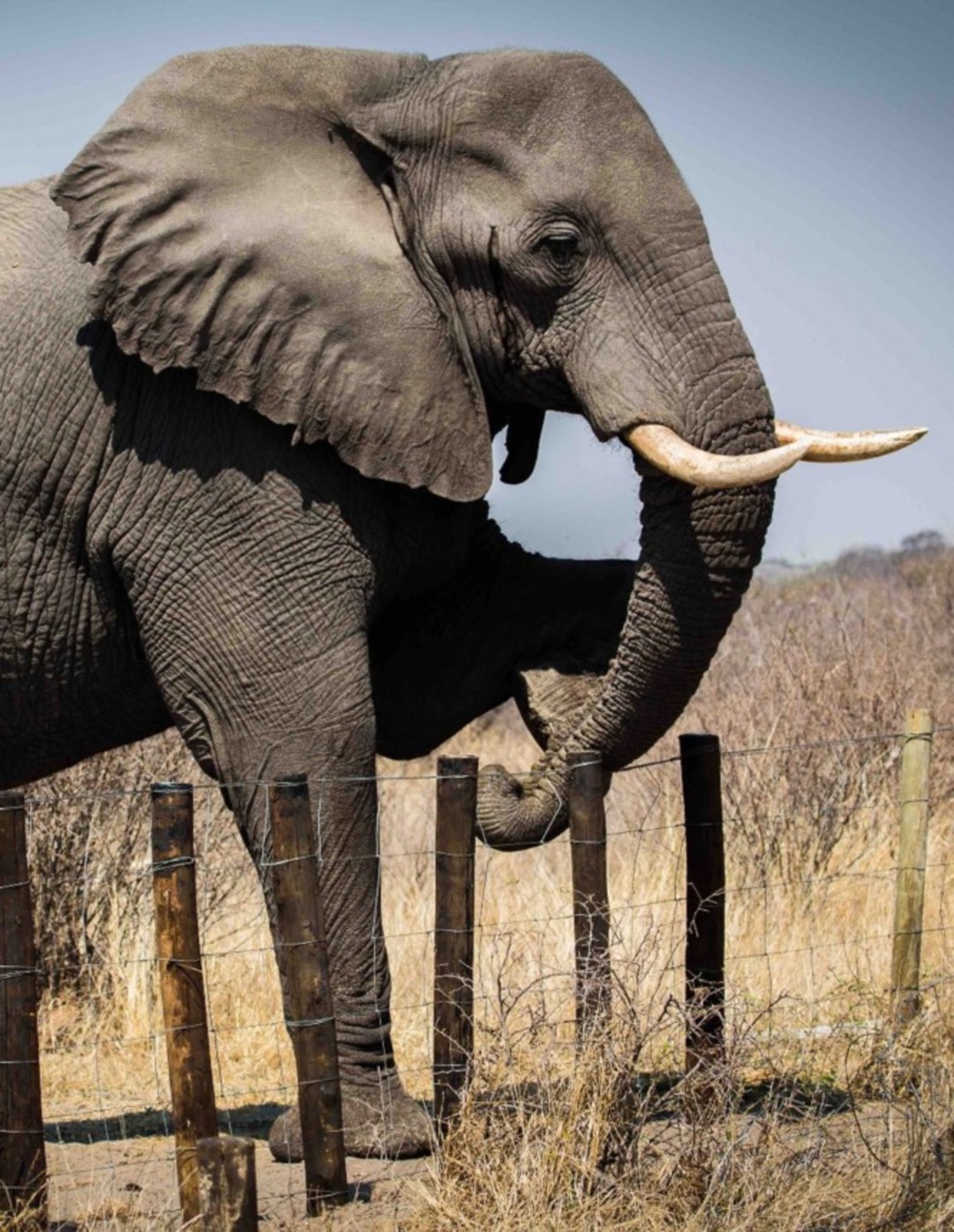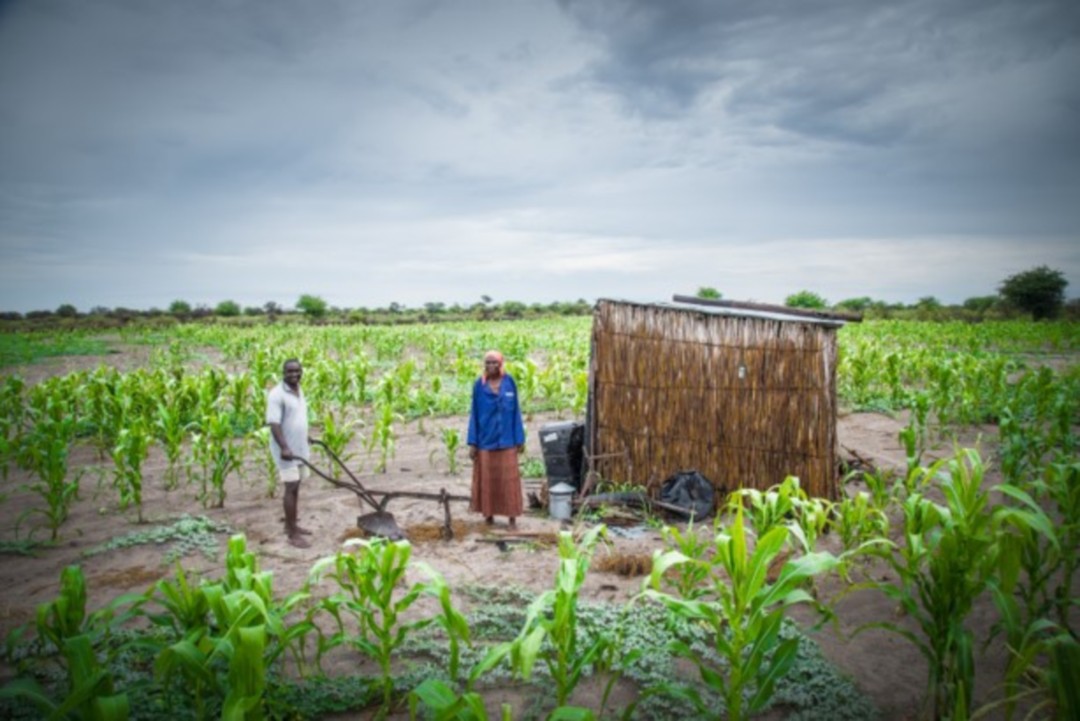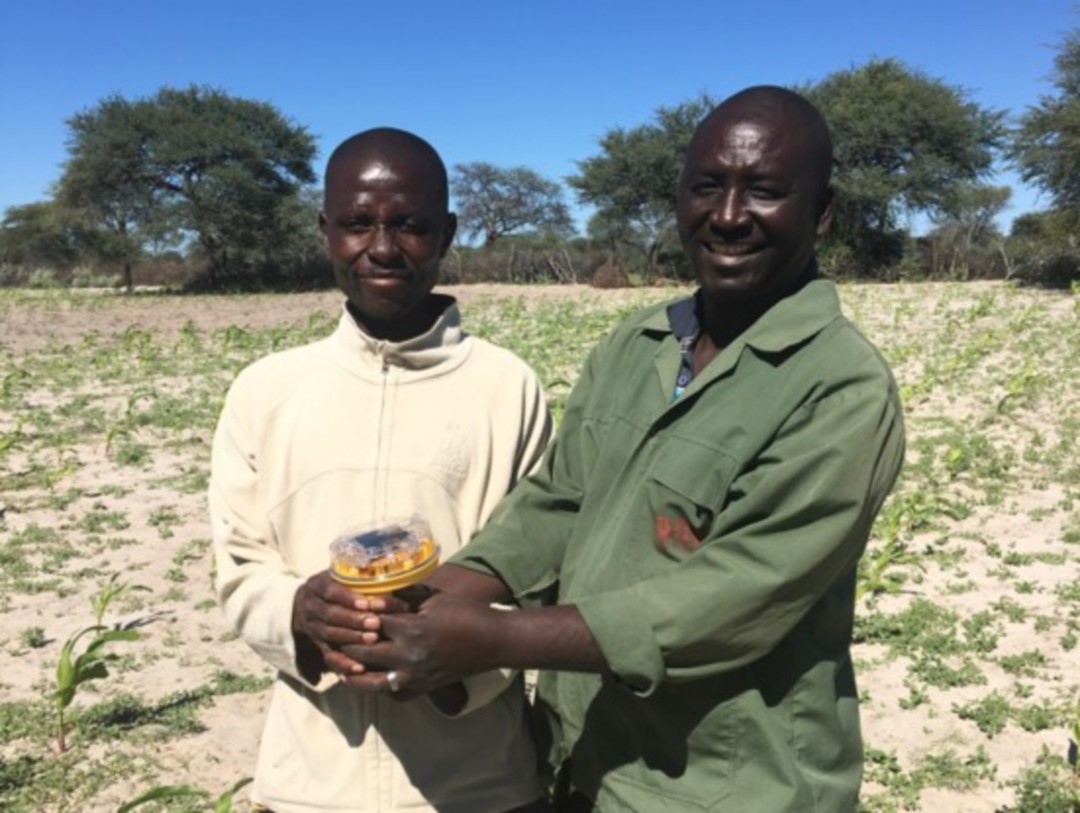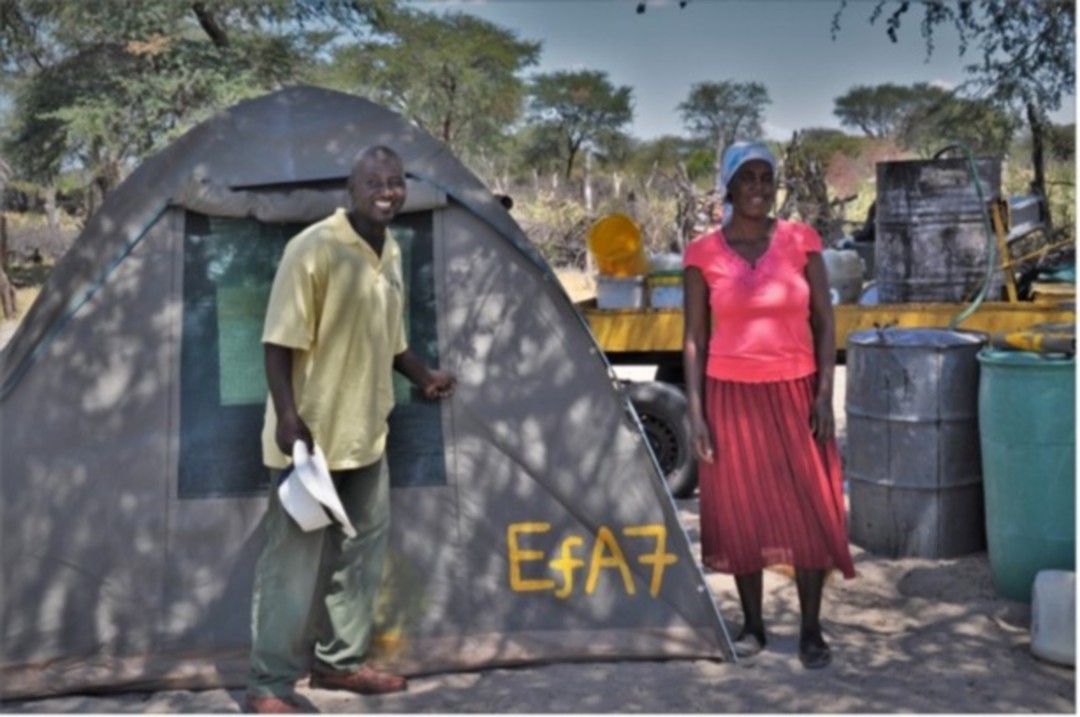Increasing food security and diversifying incomes
The project aimed to support local farmers in growing chilies, within the Makgadikgadi Pans National Park (MPNP) region, in order to both reduce elephant human conflict and provide a secondary income to the farmers. Five chili plots in the villages of Khumaga, Moreomaoto, and Phuduhudu were successfully established, reflecting the enthusiasm within the community for local chili production. Community Officers engaged in one-on-one training sessions, on how to grind and burn the chilies, with the beneficiaries. The Botswana government suddenly banned the importation of all capsicum in December 2021, delaying the transplantation of locally sourced and grown seedlings, amongst the beneficiaries. Once fully developed, the chili plots will enable the farmers to utilize them as a cash crop, creating an avenue for additional income and an alternative livelihood. In the village of Phuduhudu, the chili plot at the local health clinic has diversified into a vegetable garden. Its produce will be distributed to the sick in the village, exemplifying the holistic approach of the initiative. The project additionally successfully delivered wider community education on elephant human conflict mitigation thanks to six environmental school classes.
Founded in 2007, Elephants for Africa is a UK registered charity and an NGO in Botswana. It is committed to elephant conservation through research and education.
News
Type
Education / Community Development / EnvironmentDuration
January 2022- June 2023Location
Makgadikgadi Pans National Park / BotswanaWith whom
Elephants for Africa
Website




Warning: Undefined array key 1 in /home/clients/6976e6f747236fd53b0ac05fb967ea6b/aoweb/layout/front_functions.php on line 387
Botswana
Population
2.3 million (2019 World Bank)
Per Capita Income
USD 7,500/year (2019 World Bank)
Poverty rate *
16% (2016 World Bank)
Literacy rate
87% (2020 Human Development Report)
Human Development Index
100th out of 189 countries (2020)
Depuis son indépendance en 1966, le Botswana est passé de l'un des pays les plus pauvres du monde à l'une des réussites mondiales en matière de développement. Une petite population de 2,3 millions d'habitants, d'importantes richesses minérales, une bonne gouvernance et une gestion économique prudente lui ont permis de devenir un pays à revenu moyen supérieur. Les conditions de vie de la population botswanaise se sont améliorées et la pauvreté a considérablement diminué. Cette réduction rapide de la pauvreté peut être attribuée principalement à la combinaison de l'augmentation des revenus agricoles, y compris les subventions, et des changements démographiques. Les progrès dans la réduction de la pauvreté se sont accompagnés d'une amélioration de la prospérité partagée.
Sources : Programme alimentaire mondial, UNICEF, Banque mondiale, Rapport sur le développement humain 2020
*Pourcentage de la population vivant sous le seuil de pauvreté national.
Sources: World Food Program, UNICEF, World Bank, 2016 Human Development Report, Human Development Indices and Indicators (2018 Statistical Update)
*The percentage of the population living below the national poverty line.